Emotional roles in games. Literate storytelling and streaming
Emotions in games are created by developers in order to bind the player to himself as much as possible and to engage him deeper into the gameplay:
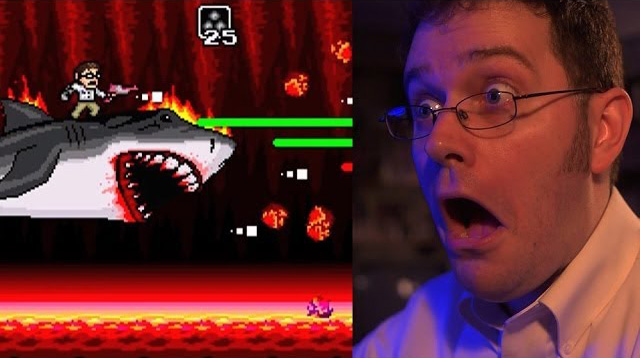
AVGN Games - Angry Video Game Nerd gets the game to himself [ 1 ]
The article describes various emotional roles that are recouped by the game character and / or the player himself. Examples of games where these techniques of engagement have been used successfully are given. References to sources of used literature are given for more in-depth study of the topic.
The theme of creating emotions in the games being developed is complex and multifaceted. It is poorly studied and formalized. Even the approach to the evaluation of emotions in professional psychologists is controversial. This topic can be approached from different angles. In my subsequent publications, I will return to this topic from different points of view. This publication will examine the emotional roles of the player and / or his character with specific examples of implementations in finished products. The article does not claim to be universal and complete, therefore any additions and corrections in the comments will only improve it.
Getting started.
1. The role of the defender [ 2 ]:
1.1. Cannon Fodder (Cannon Meat) [ 3]. The hill shown before each mission is gradually filled with the graves of fallen soldiers. The player begins to take care of his "consumables" more, and a victory with one life lost or with 0 suddenly makes sense.
 Retro Revisited: Cannon Fodder (Amiga) [ 4 ]
Retro Revisited: Cannon Fodder (Amiga) [ 4 ]
1.2. X-COM [ 5 ]. The possibility of cosmetic customization and (re) naming each soldier in the unit. This inevitably leads to the appearance of pets and rogue. Rogue characters become common consumables, and the player tries to protect pets and pump them first.
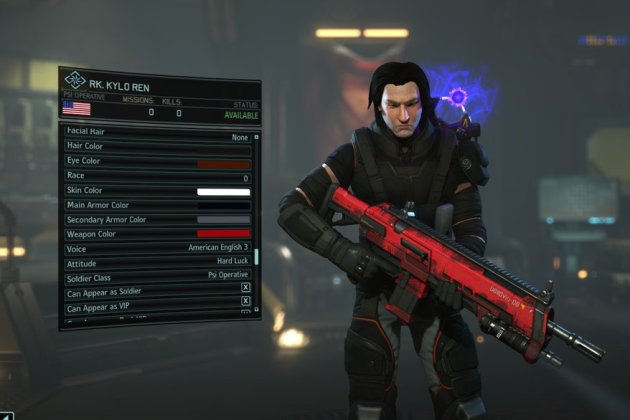 Kylo Ren in X-COM 2 - customization [ 6 ]
Kylo Ren in X-COM 2 - customization [ 6 ]
1.3. Planetfall (text adventure 1983) [ 7 ]. According to the plot of the game, the main character Roger Wilco finds himself after a shipwreck on an uninhabited dying planet, along with a nice assistant robot Floyd. His task is to find a way to leave the planet. And until the middle of the game, everything goes as standard. But then there is a puzzle in which to solve it is necessary to send Floyd to certain death. Many players found it very difficult to go for it and some refused to do it for a long time, and only by the end of the game did they get the opportunity to repair Floyd.
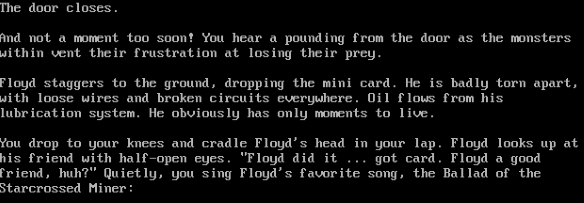 Retro Gaming: Planetfall part 4 - Floyd's victim [ 8 ]
Retro Gaming: Planetfall part 4 - Floyd's victim [ 8 ]
1.4. The classic and most beaten story on the rescue of the abducted girlfriend / sister / sensei / sacred relic ( Mario, Zelda ... the list is limitless ). The character here acts as a bold hero, rushing to help the unfortunate. To enhance the effect in some games, the character fails to fail the mission, and the “salvaged charm” dies tragically or turns out to be an insidious traitor and deceiver. Then the role of the defender often changes to the role of the avenger.
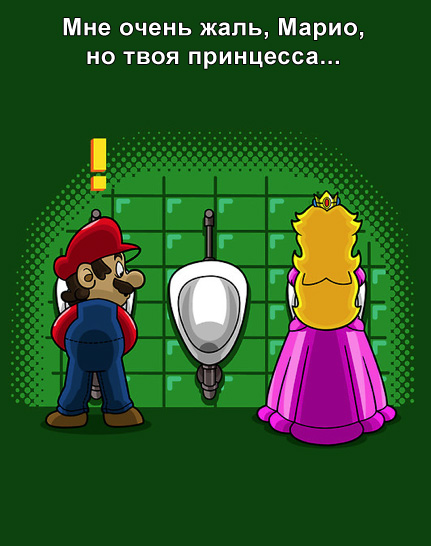 [ 9 ]
[ 9 ]
The authors of the article [ 2 ] believe that this effect of sympathy does not work at all in escort and guard missions ( or, at least, the effect loses much effect after such a mission ). These "defenseless NPCs" die either from their stupidity or from being stuck in textures. If the NPC does not die, then they are most likely made invulnerable, so all your attempts to save them look ridiculous. Often these immortal escorts are used as a distracting carcass, which takes all the blows. Inclined to agree with them.
1.5. Touched for weak. The oppressor / burglar attacks the defenseless NPC (child, old woman) and the hero boldly drives the bastard away. Even in such a primitive implementation, it reveals the character of the character. Some games are smarter and instead of rewarding for such a noble act, the hero gets something completely different:
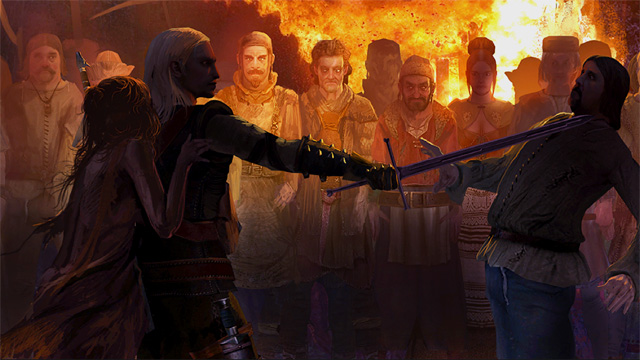 The Witcher Geralt from Rivia rescues the witch Abigail [ 11 ]
The Witcher Geralt from Rivia rescues the witch Abigail [ 11 ]
2. The role of the lover , where the player empathizes with the love experience of his character and tries to help him. [ 2 ]
2.1. Active institution of love relationshipsas an additional quest (many JRPG, Skyrim with their weddings). Often serves as a tick in the form of another achievement. It affects the emotions slightly. Although surprise sometimes plays a strong role. For example, in Dragon Age, a somewhat innocuous phrase with a friendly companion, Aleister, could unexpectedly lead to a bed scene and declarations of love (in any order). Moreover, Alisetr could start blackmailing the player for sex, as in case of refusal, the relationship with the character deteriorated very much [ 12 ] ( and this greatly influenced the combat characteristics, like the whole friendship system ).
This, of course, is a crooked design, but this chip made so much noise in the press that maybe it was intentionally left by the developers. It is worth noting that in the Dragon Age the development of friendly relations is based on communication during halts and periodically in the midst of story missions. To do this, the player must regularly ask companions about their past, while necessarily indulging so that the other party likes it ( long live the hypocrisy and the mighty Save / Load ).
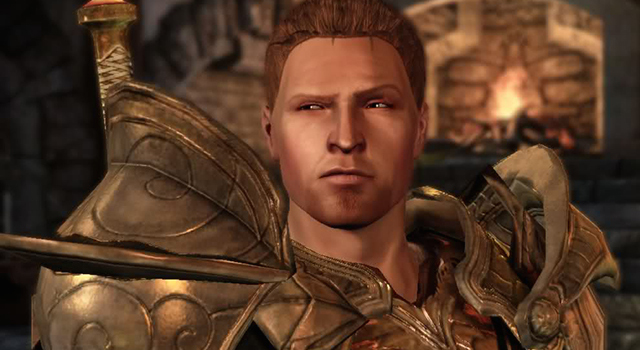 [ 13 ]
[ 13 ]
Oh yeah, Dragon Age is one of those games where the active development of love relationships is completely independent of the gender and race of the characters. On the bed scene and distribution of bonuses to the characteristics of a romantic line in this game does not end. A player can change his new love by immediately causing a break in relations and a feeling of guilt ( or relief, especially if all this was originally caused by the accidental activation of obscure scripts ).
2.2. Passive institution of love relationshipsas part of the plot, perhaps a minor one. In these cases, the player has a minimal opportunity to influence the development of relations, or does not have such an opportunity at all. There are already used methods of convergence of books and films:
The passive approach is more often used than the active one, because it is easier to implement and more controlled by the scriptwriter. For example, this is well implemented in Final Fantasy VIII [ 14 ].
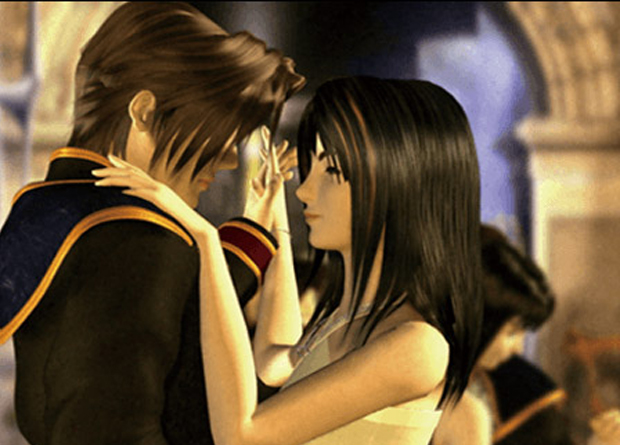 Final Fantasy VIII (upgrademag.com) [ 15 ]
Final Fantasy VIII (upgrademag.com) [ 15 ]
2.3. Supersexual minor (or even the main) characters . This is usually expressed in defiant behavior, hyperbolic forms, and overt dresses. Perhaps the most lazy and weak working method. However, even he can become a feature of the game and find his grateful audience.
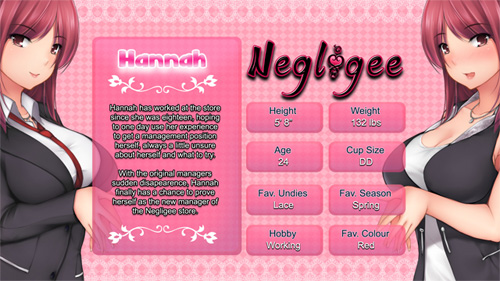 Negligee: Love Stories - the most innocent screen [ 16 ]
Negligee: Love Stories - the most innocent screen [ 16 ]
Romantic relationships in games are almost always traditionally aimed at the target male audience. Although now the situation is gradually leveling. However, since the development of additional romantic scenarios for other genders ( plus the third option, “the other is not defined” ) requires additional developer costs, then most often work out only the gender of the target audience.
3. The role of a friend . Spiritually very close to the role of a lover, but has a number of fundamental differences. [ 2 ]
Friendship is much weaker than romance, but has its advantages in terms of introduction into the game:
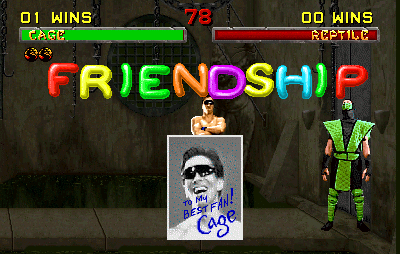 Finish Him! Where have all the Fatalities Gone? [ 17 ]
Finish Him! Where have all the Fatalities Gone? [ 17 ]
To build friendships (active or passive) between NPCs, various role-based forms of friendship can be used [ 18 ]. To make friendship more natural, it seems reasonable to combine only a small number of roles, forcing the characters to behave in accordance with the forms assigned to them:
Strange as it may seem, the main reason for entering nice friendly characters in games is to make them suffer in the future. If an NPC character is sympathetic to the player (he has a similar character, dress style, just a darling), then the player will not give a damn if this NPC is kidnapped, wounded, killed. That is why in Hollywood films to unfamiliar third-party characters you cannot tell about your family, how much he loves them, how he will hug them when he returns ... You can be 80% sure that this character will be killed very soon. And yet this cheap trick is still used. Sometimes to genius successfully:
 Hotheads are the happy day of the Dead Man [ 19 ] [ 20 ]
Hotheads are the happy day of the Dead Man [ 19 ] [ 20 ]
4. The role of the victim . [ 2 ]
Two main directions can be distinguished here: the player’s hero himself suffers or the surrounding characters suffer, perhaps even because of the player’s hero.
4.1. The victim is the hero of the player .
Usually, a hero in such a plot is subjected to unjust oppression, punishment and humiliation. In contrast to the role of the avenger, the role of the victim implies the character's humility with the circumstances and attempts to adapt and survive in harsh conditions. For example, in the game War of Mine [ 21 ], a group of characters is trying to survive in a city in which fighting is taking place.
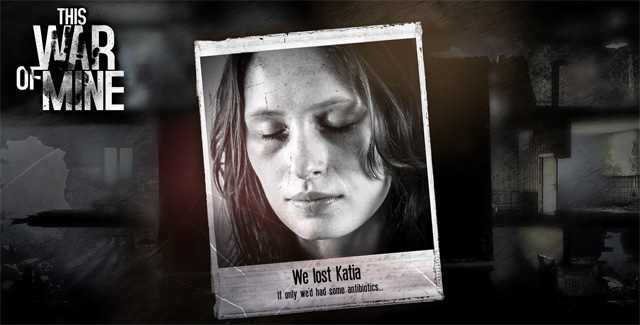 War of Mine [ 21 ]
War of Mine [ 21 ]
If one of the inhabitants of the house dies, then the rest grieve for this loss, but they do not take revenge on the invaders and all the marauders in the city, but try to survive under conditions of a smaller team. The role of the avenger would require in this case to arm itself with a mount / gunshot and go to destroy the bad guys and generals in the city.
4.2. The victims are the surrounding characters .
The key point here is that the player must feel similar to the victims. Project their experiences on themselves and scroll the thought in their head: “They are like me.” The more reasons for the player to build such an analogy "They are like me", the more this connection will be similar. Or feel guilty for the suffering of others. For example, a video excerpt from the game Call of Duty: Modern Warfare 2 at a Russian airport:
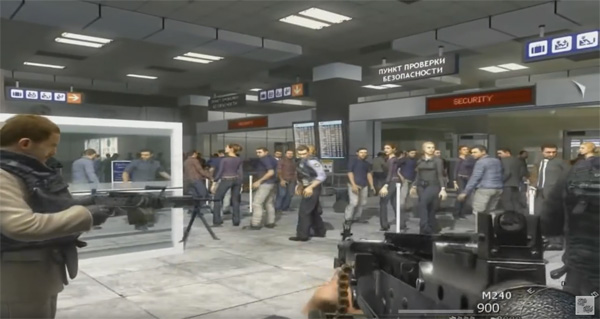 Call of duty: Modern Warfare 2 "Not a word in Russian" [ 22 ]
Call of duty: Modern Warfare 2 "Not a word in Russian" [ 22 ]
This has particularly hurt the Russian speakers, and it is very easy to single out the points of similarity:
More points worked - more empathy, dislike, disgust, anger. Less points of similarity - a minimum of empathy.
5. The role of the avenger .
5.1. Vengeance for a crime .
This role can not be independent. You can not immediately become an avenger, who will not give a damn. First, the player must try on another role: protector, lover or friend. Then he must lose a strong emotional connection — most often through abduction or death. Then the player himself will want revenge. Or will not, if the last item was implemented poorly by the game. Naturally, the better the enemy is familiar to the player, the more the player is imbued with the idea of revenge.
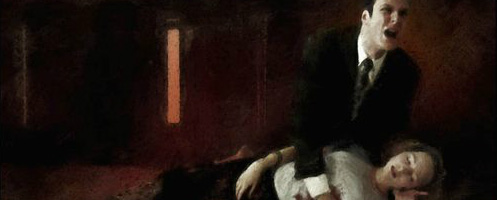 Max Payne [ 23 ]
Max Payne [ 23 ]
The action game Max Payne, where the family of the detective is killed at the very beginning of the game, is entirely devoted to the role of the avenger. When at the very beginning the plot of the plot with its tragedy becomes known, it finds a weak response from the player. However, throughout the game, the player is gradually introduced to the experiences of the main character, there are periodic memories of the past, even levels with nightmares about his loss. This ultimately gives importance and meaning to all those shootouts that occur on the screen.
5.2. Restoration of social justice .
Usually much weaker emotions are used in this role, however, it is much easier to create the necessary situations. The scale of events is usually local, the initial consequences are minimal and insignificant, the motivation is petty, but the emotional response may be unexpectedly strong. To understand the basic idea of the situation, I suggest recalling the bearded anecdote:
As a game example, you can take pigs in Angry Birds.
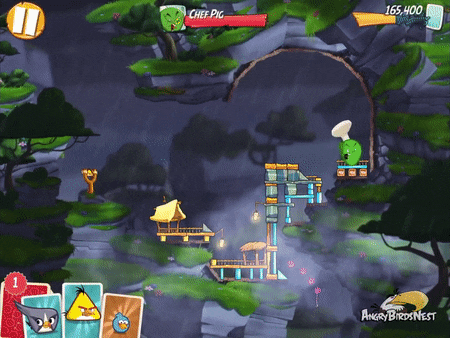 Angry Birds 2 - mockery from the boss - Youtube [ 24 ]
Angry Birds 2 - mockery from the boss - Youtube [ 24 ]
Pigs regularly release snide remarks about the player’s long aiming or misses. Nothing serious. But after another close slip, they begin to annoy, and I want to punish these green snakes properly.
6. The role of the villain .
In this role, the player is invited to visit the skin of the anti-hero - from the "evil forces", which in most classic stories almost always has the loser.
6.1. The villain is by nature .
Usually the heroes here are the monsters. These villains, if you look, and then there was no choice. From their point of view, they act naturally and the malice of their actions is visible only from representatives of other species. Such heroes can cause sympathy and even sympathy, and their monstrosity justifies any actions of the player and does not cause shame. For example, in my 7-day bagel the player controls the army of xenomorphs, destroying the whole enemy army, but instead of the villainous sensations there is a feeling of the crushing crowd of stupid monsters (this was the task of development):
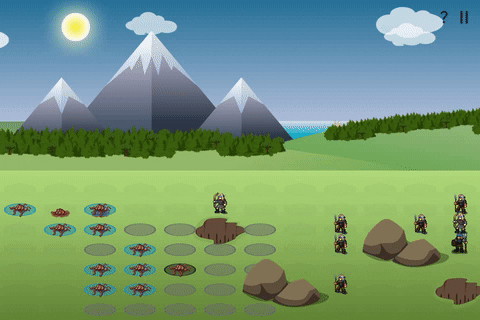 Xenomorph 7drl of Infinite Underworld [ 25 ]
Xenomorph 7drl of Infinite Underworld [ 25 ]
6.2. The villain of his choice .
Moreover, this choice can be made both by the player himself (playing the character with an evil worldview in Dungeons & Dragons [ 26 ]) and by the game developers. It means that in fact the game character had a choice whether to take the evil side, and he made his choice ( for example, the roguelike version from the original Dungeon Keeper [ 27 ] ). A player follows this choice. However, sometimes the player can still control the degree of villainy.
 Dungeon Keeper roguelike - KeeperRL [ 28 ]
Dungeon Keeper roguelike - KeeperRL [ 28 ]
Thus, we considered what interesting roles a player plays through his character:
1) a defender;
2) lover;
3) friend;
4) the victim;
5) the avenger;
6) the villain.
The game can combine more than one role both in combinations (protector + friend + lover), and in gradual transitions from one role to another (protector-> victim-> avenger). Attempts to use all the roles in a row or ignoring them usually lead to the fact that the player does not take what is happening seriously. As a result of such a failure, the game seriously loses its appeal and has less chance of success.
Games have long been recognized as an art form with a significant market. And for end developers, this means not only revenue growth, but also their decline due to the explosive growth of competition. In times of market glut, only the strongest / flexible survive ( not necessarily the largest ), and the income distribution becomes such that “leaders get almost everything” [ 29 ], and “middle peasants and low classes get almost nothing”. For a good example, you can look at the film industry: the films themselves and the fees of actors in different categories.
If you have any additions to the presented classification, I would be very interested to read about it in the comments. The topic is very extensive and it is very difficult to fully consider it.
- intrigued by an unusual quest, the player will not immediately turn off the game, he will play "a little bit more" to satisfy his curiosity ( and in the end he will stay twice as long );
- a meaningful NPC begins to indirectly blackmail the player’s character for intimate relationships, and the player irritably tries to get rid of the impudent person peacefully ( example inside );
- if a player has already fallen in love with the universe he studied and her original NPC inhabitants, he will not give a damn about the next apocalypse, when only his hero can save the whole world;
- If a player is in a dangerous situation in a roguelike ( and threatened for more than 20 hours ), and then miraculously got out of it, he will probably want to share his achievements on his favorite forum.

AVGN Games - Angry Video Game Nerd gets the game to himself [ 1 ]
The article describes various emotional roles that are recouped by the game character and / or the player himself. Examples of games where these techniques of engagement have been used successfully are given. References to sources of used literature are given for more in-depth study of the topic.
The theme of creating emotions in the games being developed is complex and multifaceted. It is poorly studied and formalized. Even the approach to the evaluation of emotions in professional psychologists is controversial. This topic can be approached from different angles. In my subsequent publications, I will return to this topic from different points of view. This publication will examine the emotional roles of the player and / or his character with specific examples of implementations in finished products. The article does not claim to be universal and complete, therefore any additions and corrections in the comments will only improve it.
Getting started.
1. The role of the defender [ 2 ]:
1.1. Cannon Fodder (Cannon Meat) [ 3]. The hill shown before each mission is gradually filled with the graves of fallen soldiers. The player begins to take care of his "consumables" more, and a victory with one life lost or with 0 suddenly makes sense.

1.2. X-COM [ 5 ]. The possibility of cosmetic customization and (re) naming each soldier in the unit. This inevitably leads to the appearance of pets and rogue. Rogue characters become common consumables, and the player tries to protect pets and pump them first.

1.3. Planetfall (text adventure 1983) [ 7 ]. According to the plot of the game, the main character Roger Wilco finds himself after a shipwreck on an uninhabited dying planet, along with a nice assistant robot Floyd. His task is to find a way to leave the planet. And until the middle of the game, everything goes as standard. But then there is a puzzle in which to solve it is necessary to send Floyd to certain death. Many players found it very difficult to go for it and some refused to do it for a long time, and only by the end of the game did they get the opportunity to repair Floyd.

1.4. The classic and most beaten story on the rescue of the abducted girlfriend / sister / sensei / sacred relic ( Mario, Zelda ... the list is limitless ). The character here acts as a bold hero, rushing to help the unfortunate. To enhance the effect in some games, the character fails to fail the mission, and the “salvaged charm” dies tragically or turns out to be an insidious traitor and deceiver. Then the role of the defender often changes to the role of the avenger.

The authors of the article [ 2 ] believe that this effect of sympathy does not work at all in escort and guard missions ( or, at least, the effect loses much effect after such a mission ). These "defenseless NPCs" die either from their stupidity or from being stuck in textures. If the NPC does not die, then they are most likely made invulnerable, so all your attempts to save them look ridiculous. Often these immortal escorts are used as a distracting carcass, which takes all the blows. Inclined to agree with them.
1.5. Touched for weak. The oppressor / burglar attacks the defenseless NPC (child, old woman) and the hero boldly drives the bastard away. Even in such a primitive implementation, it reveals the character of the character. Some games are smarter and instead of rewarding for such a noble act, the hero gets something completely different:
- the blind old woman calls the guard and accuses the hero of the attack;
- the bastard returns with accomplices and robs the hero;
- Witcher Geralt of Rivia [ 10 ], defending the witch Abigail ( who was not actually an example of innocence ) from burning, cuts out a lot of people from the village. As a result, he leaves the village not as a savior, but as a thug. This causes the player to break the pattern, when instead of rewarding for the right actions, he receives punishment.

2. The role of the lover , where the player empathizes with the love experience of his character and tries to help him. [ 2 ]
2.1. Active institution of love relationshipsas an additional quest (many JRPG, Skyrim with their weddings). Often serves as a tick in the form of another achievement. It affects the emotions slightly. Although surprise sometimes plays a strong role. For example, in Dragon Age, a somewhat innocuous phrase with a friendly companion, Aleister, could unexpectedly lead to a bed scene and declarations of love (in any order). Moreover, Alisetr could start blackmailing the player for sex, as in case of refusal, the relationship with the character deteriorated very much [ 12 ] ( and this greatly influenced the combat characteristics, like the whole friendship system ).
This, of course, is a crooked design, but this chip made so much noise in the press that maybe it was intentionally left by the developers. It is worth noting that in the Dragon Age the development of friendly relations is based on communication during halts and periodically in the midst of story missions. To do this, the player must regularly ask companions about their past, while necessarily indulging so that the other party likes it ( long live the hypocrisy and the mighty Save / Load ).

Oh yeah, Dragon Age is one of those games where the active development of love relationships is completely independent of the gender and race of the characters. On the bed scene and distribution of bonuses to the characteristics of a romantic line in this game does not end. A player can change his new love by immediately causing a break in relations and a feeling of guilt ( or relief, especially if all this was originally caused by the accidental activation of obscure scripts ).
2.2. Passive institution of love relationshipsas part of the plot, perhaps a minor one. In these cases, the player has a minimal opportunity to influence the development of relations, or does not have such an opportunity at all. There are already used methods of convergence of books and films:
- characters are interesting and charismatic separately, they have a past, character and motivation;
- heroes gradually get to know each other closer and closer;
- spend more time with each other;
- find common interests;
- together overcome difficulties;
- sacrifice something for each other.
The passive approach is more often used than the active one, because it is easier to implement and more controlled by the scriptwriter. For example, this is well implemented in Final Fantasy VIII [ 14 ].

2.3. Supersexual minor (or even the main) characters . This is usually expressed in defiant behavior, hyperbolic forms, and overt dresses. Perhaps the most lazy and weak working method. However, even he can become a feature of the game and find his grateful audience.

Romantic relationships in games are almost always traditionally aimed at the target male audience. Although now the situation is gradually leveling. However, since the development of additional romantic scenarios for other genders ( plus the third option, “the other is not defined” ) requires additional developer costs, then most often work out only the gender of the target audience.
3. The role of a friend . Spiritually very close to the role of a lover, but has a number of fundamental differences. [ 2 ]
Friendship is much weaker than romance, but has its advantages in terms of introduction into the game:
- Friendship is not obligated to develop anything (I remind you that this is a game friendship between game characters ). She does not have to develop into a wedding, bed scenes, children, buying a play house, buying a play ring.
- Friendship is much easier to overcome racial differences. For example, is it easier to imagine friendship or love between a Tolkien hobbit and a troll?
- Friendship admits the possibility of having any set of friends, but with multiple love in games, I can not even remember a single example (or at least polygamy - I don’t know yet such examples).

To build friendships (active or passive) between NPCs, various role-based forms of friendship can be used [ 18 ]. To make friendship more natural, it seems reasonable to combine only a small number of roles, forcing the characters to behave in accordance with the forms assigned to them:
- Mutual assistance ( common goals, common work, common enemy ). That is the role of the companion in travel. That is why in Final Fantasy games most often play for the characters that appeared in the team before others.
- Interlocutor. It is always interesting to talk with him, can serve as a walking encyclopedia in the game. This role was actively used in Dragon Age: Origins there party members not only communicate on halts, but also release periodic scripted replicas as they travel.
- Walking conscience. Honestly reports on your achievements and shortcomings. I stole a granny instead of help - such a friend should somehow react condemningly ( or, on the contrary, praise - this should depend on his worldview ).
- Opposite. Complement each other with missing abilities. Something like that I met in the game novels in the combinations “closed modest + cheeky hooligan”, as a result of which the characters gradually take over from each other some features.
- An example to follow. Most often in games it is a combination of Sensei-student, an adult-teenager, a veteran novice, traveling together. Quite often, such a friendship ends with the death of a friend-leader (Sensei, adult, veteran), squeezing the necessary game designer a tear. Naturally, it does not work if the player did not really know anything about their relationship.
- Fun / optimist. This is a typical jovialist in a party of adventurers with a stock of optimism and anecdotes for all occasions
of thescript. Optimistically evaluates the future, even if the team has serious difficulties. - Vest for tears. Helps relive failures, encourages in case of defeat, always takes your side during the complaints of the hero.
Strange as it may seem, the main reason for entering nice friendly characters in games is to make them suffer in the future. If an NPC character is sympathetic to the player (he has a similar character, dress style, just a darling), then the player will not give a damn if this NPC is kidnapped, wounded, killed. That is why in Hollywood films to unfamiliar third-party characters you cannot tell about your family, how much he loves them, how he will hug them when he returns ... You can be 80% sure that this character will be killed very soon. And yet this cheap trick is still used. Sometimes to genius successfully:

4. The role of the victim . [ 2 ]
Two main directions can be distinguished here: the player’s hero himself suffers or the surrounding characters suffer, perhaps even because of the player’s hero.
4.1. The victim is the hero of the player .
Usually, a hero in such a plot is subjected to unjust oppression, punishment and humiliation. In contrast to the role of the avenger, the role of the victim implies the character's humility with the circumstances and attempts to adapt and survive in harsh conditions. For example, in the game War of Mine [ 21 ], a group of characters is trying to survive in a city in which fighting is taking place.

If one of the inhabitants of the house dies, then the rest grieve for this loss, but they do not take revenge on the invaders and all the marauders in the city, but try to survive under conditions of a smaller team. The role of the avenger would require in this case to arm itself with a mount / gunshot and go to destroy the bad guys and generals in the city.
4.2. The victims are the surrounding characters .
The key point here is that the player must feel similar to the victims. Project their experiences on themselves and scroll the thought in their head: “They are like me.” The more reasons for the player to build such an analogy "They are like me", the more this connection will be similar. Or feel guilty for the suffering of others. For example, a video excerpt from the game Call of Duty: Modern Warfare 2 at a Russian airport:

This has particularly hurt the Russian speakers, and it is very easy to single out the points of similarity:
- The mission briefing uniquely identifies the location - Moscow, Russia ( similarity is one country, but the airport is made up );
- the situation is defined as Russian due to Russian inscriptions at the airport ( unexpectedly tolerably literate );
- quite realistic cinematic graphics for the time of the game ( people are alive );
- at the beginning of shooting, people start in a panic to try to run away or hide ( quite logical actions, many would probably do that too );
- The theme of the attacks is very acute now in the world.
More points worked - more empathy, dislike, disgust, anger. Less points of similarity - a minimum of empathy.
5. The role of the avenger .
5.1. Vengeance for a crime .
This role can not be independent. You can not immediately become an avenger, who will not give a damn. First, the player must try on another role: protector, lover or friend. Then he must lose a strong emotional connection — most often through abduction or death. Then the player himself will want revenge. Or will not, if the last item was implemented poorly by the game. Naturally, the better the enemy is familiar to the player, the more the player is imbued with the idea of revenge.

The action game Max Payne, where the family of the detective is killed at the very beginning of the game, is entirely devoted to the role of the avenger. When at the very beginning the plot of the plot with its tragedy becomes known, it finds a weak response from the player. However, throughout the game, the player is gradually introduced to the experiences of the main character, there are periodic memories of the past, even levels with nightmares about his loss. This ultimately gives importance and meaning to all those shootouts that occur on the screen.
5.2. Restoration of social justice .
Usually much weaker emotions are used in this role, however, it is much easier to create the necessary situations. The scale of events is usually local, the initial consequences are minimal and insignificant, the motivation is petty, but the emotional response may be unexpectedly strong. To understand the basic idea of the situation, I suggest recalling the bearded anecdote:
- Grandmother! Sorry, I stepped on your foot!In situations of restoration of social justice, it is characteristic that with each iteration of the conflict the seriousness of the response is constantly increasing. It is necessary to punish more than the damage caused so that it will not be a matter of the future. And this creates a response ...
- Nothing, my dear! I already spit on your back!
As a game example, you can take pigs in Angry Birds.

Pigs regularly release snide remarks about the player’s long aiming or misses. Nothing serious. But after another close slip, they begin to annoy, and I want to punish these green snakes properly.
6. The role of the villain .
In this role, the player is invited to visit the skin of the anti-hero - from the "evil forces", which in most classic stories almost always has the loser.
6.1. The villain is by nature .
Usually the heroes here are the monsters. These villains, if you look, and then there was no choice. From their point of view, they act naturally and the malice of their actions is visible only from representatives of other species. Such heroes can cause sympathy and even sympathy, and their monstrosity justifies any actions of the player and does not cause shame. For example, in my 7-day bagel the player controls the army of xenomorphs, destroying the whole enemy army, but instead of the villainous sensations there is a feeling of the crushing crowd of stupid monsters (this was the task of development):

6.2. The villain of his choice .
Moreover, this choice can be made both by the player himself (playing the character with an evil worldview in Dungeons & Dragons [ 26 ]) and by the game developers. It means that in fact the game character had a choice whether to take the evil side, and he made his choice ( for example, the roguelike version from the original Dungeon Keeper [ 27 ] ). A player follows this choice. However, sometimes the player can still control the degree of villainy.

Conclusion
Thus, we considered what interesting roles a player plays through his character:
1) a defender;
2) lover;
3) friend;
4) the victim;
5) the avenger;
6) the villain.
The game can combine more than one role both in combinations (protector + friend + lover), and in gradual transitions from one role to another (protector-> victim-> avenger). Attempts to use all the roles in a row or ignoring them usually lead to the fact that the player does not take what is happening seriously. As a result of such a failure, the game seriously loses its appeal and has less chance of success.
Games have long been recognized as an art form with a significant market. And for end developers, this means not only revenue growth, but also their decline due to the explosive growth of competition. In times of market glut, only the strongest / flexible survive ( not necessarily the largest ), and the income distribution becomes such that “leaders get almost everything” [ 29 ], and “middle peasants and low classes get almost nothing”. For a good example, you can look at the film industry: the films themselves and the fees of actors in different categories.
If you have any additions to the presented classification, I would be very interested to read about it in the comments. The topic is very extensive and it is very difficult to fully consider it.
Bibliography
1. AVGN Games — Angry Video Game Nerd получает игру про себя.
2. How games create emotional connections — статья с примерами.
3. Cannon Fodder — Википедия.
4. Retro Revisited: Cannon Fodder (Amiga).
5. Серия X-COM — Википедия.
6. Кайло Рен в X-COM 2 — кастомизация.
7. Planetfall — текстовая адвенчура, Википедия.
8. Retro Gaming: Planetfall part 4 — жертва Флойда.
9. I'm Sorry, But Your Princess is Not a Princess After All.
10. Ведьмак I Геральт из Ривии — Стим.
11. Ведьмак Геральт из Ривии спасает ведьму Абигэйл.
12. Alistair is a Jerk! Dragon Age: Origins.
13. Relive The Joy and Trauma of Playing Dragon Age.
14. Final Fantasy VIII Retrospective: The Greatest Love Story.
15. Final Fantasy VIII (upgrademag.com).
16. Negligee: Love Stories — самый невинный скрин.
17. Finish Him! Where have all the Fatalities Gone?
18. Friendship — Википедия.
19. Горячие головы — счастливый день Мертвяка — Youtube отрывок.
20. Горячие головы — IMDB.
21. War of Mine — Стим.
22. Call of duty: Modern Warfare 2 «Ни слова по русски».
23. Max Payne — официальный сайт.
24. Angry Birds 2 — издевки от босса — Youtube.
25. Xenomorph 7drl of Infinite Underworld.
26. Мировоззрение в Dungeons & Dragons.
27. Dungeon Keeper — GOG.
28. Dungeon Keeper roguelike — KeeperRL.
29. Современный маркетинг, стр. 136. Анатолий Овсянников. Гугл Книги.
2. How games create emotional connections — статья с примерами.
3. Cannon Fodder — Википедия.
4. Retro Revisited: Cannon Fodder (Amiga).
5. Серия X-COM — Википедия.
6. Кайло Рен в X-COM 2 — кастомизация.
7. Planetfall — текстовая адвенчура, Википедия.
8. Retro Gaming: Planetfall part 4 — жертва Флойда.
9. I'm Sorry, But Your Princess is Not a Princess After All.
10. Ведьмак I Геральт из Ривии — Стим.
11. Ведьмак Геральт из Ривии спасает ведьму Абигэйл.
12. Alistair is a Jerk! Dragon Age: Origins.
13. Relive The Joy and Trauma of Playing Dragon Age.
14. Final Fantasy VIII Retrospective: The Greatest Love Story.
15. Final Fantasy VIII (upgrademag.com).
16. Negligee: Love Stories — самый невинный скрин.
17. Finish Him! Where have all the Fatalities Gone?
18. Friendship — Википедия.
19. Горячие головы — счастливый день Мертвяка — Youtube отрывок.
20. Горячие головы — IMDB.
21. War of Mine — Стим.
22. Call of duty: Modern Warfare 2 «Ни слова по русски».
23. Max Payne — официальный сайт.
24. Angry Birds 2 — издевки от босса — Youtube.
25. Xenomorph 7drl of Infinite Underworld.
26. Мировоззрение в Dungeons & Dragons.
27. Dungeon Keeper — GOG.
28. Dungeon Keeper roguelike — KeeperRL.
29. Современный маркетинг, стр. 136. Анатолий Овсянников. Гугл Книги.
